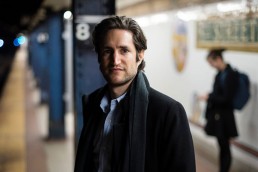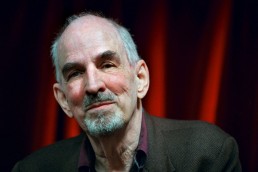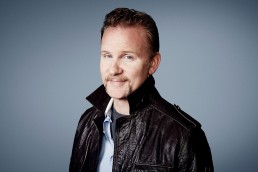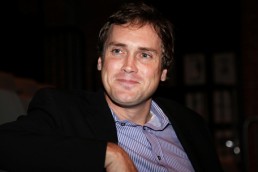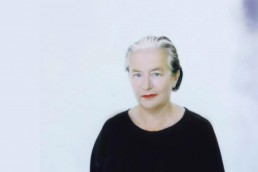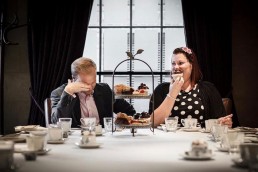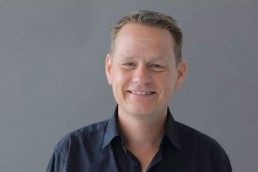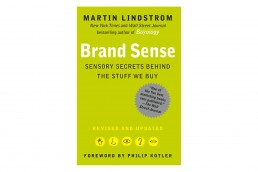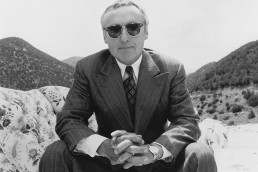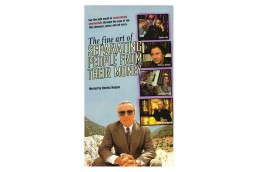Adam Alter - Irresistible
People have been addicted to substances for thousands of years, but for the past two decades, we’ve also been hooked on technologies, like Instagram, Netflix, Facebook, Fitbit, Twitter, and email—platforms we’ve adopted because we assume they’ll make our lives better. These inventions have profound upsides, but their appeal isn’t an accident. Technology companies and marketers have teams of engineers and researchers devoted to keeping us engaged. They know how to push our buttons, and how to coax us into using their products for hours, days, and weeks on end.
Tracing addiction through history, Alter shows that we’re only just beginning to understand the epidemic of behavioral addiction gripping society. He takes us inside the human brain at the very moment we score points on a smartphone game, or see that someone has liked a photo we’ve posted on Instagram. But more than that, Alter heads the problem off at the pass, letting us know what we can do to step away from the screen. He lays out the options we have to address this problem before it truly consumes us. After all, who among us hasn’t struggled to ignore the ding of a new email, the next episode in a TV series, or the desire to play a game just one more time?
“We live in an age of addiction — seemingly benign and otherwise — and Adam Alter, mixing the latest in behavioral science with briskly engaging storytelling, wakes us to an age-old problem that has found troubling new expression in the era of ubiquitous technology. You may never look at your smartphone in the same way again.”
—Tom Vanderbilt, author of Traffic and You May Also Like
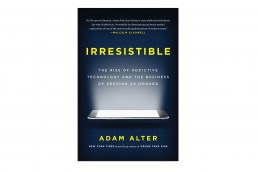
Check out this video to see him talking about the book
The Debunking Handbook, A must read for everyone in business or science
The Debunking Handbook
Stephan Lewandowsky (born 3 June 1958) is an Australian psychologist. He has worked in both the United States and Australia, and is currently based at the University of Bristol, UK, where he is the chair in cognitive psychology at the School of Experimental Psychology.[2] His research, which originally pertained to computer simulations of people’s decision-making processes, has recently focused on the public’s understanding of science and why people often embrace beliefs that are sharply at odds with the scientific evidence.
Get The Debunking Handbook here
The Debunking Handbook
John Cook is the Climate Communication Fellow for the Global Change Institute at The University of Queensland. He created the website Skeptical Science.com, which won the 2011 Australian Museum Eureka Prize for the Advancement of Climate Change Knowledge. In 2015, John was elected as a Fellow of the Committee for Skeptical Inquiry, who are selected for their ‘distinguished contributions to science and scepticism’. John co-authored the college textbook Climate Change Science: A Modern Synthesis and the book Climate Change Denial: Heads in the Sand. He won an award for Best Australian Science Writing for 2014, published by UNSW.
Get The Debunking Handbook here
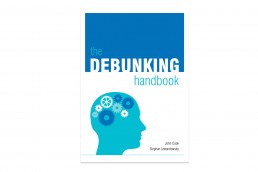
Trespassing Bergman - Film makers about the influence of Ingmar Bergman
Trespassing Bergman (re-edit from IMDB)
The idea of famous film makers on a pilgrimage to Ingmar Bergman’s Faro Island home is interesting.
Famous directors and actors who like to talk about the influences that shaped their own work and for whom Bergman represented one of the high achievers of their craft. The interviews Woody Allen playing it straight, Lars Von Trier getting laughs, Robert De Niro, who is notoriously awkward in interviews, at ease and making valid comment. To name but a few. Some music by The Radio Dept. one of Sofia Coppola’s (and my) favourite bands.
Check out the trailer and see the film if you’re interested in making a film yourself. Learn from the best in the industry.
The Greatest Movie Ever Sold - Morgan Spurlock
The Greatest Movie Ever Sold – Morgan Spurlock
A documentary about branding, advertising and product placement that is financed and made possible by brands, advertising and product placement.
Basically it’s post modern art that Marcel Duchamp would have loved.
Tom Vanderbilt - You May Also Like
You may also like, taste in age of endless choice.
Why we like the things we like, why we hate the things we hate, and what our preferences reveal about us.
With a voracious curiosity, Vanderbilt stalks the elusive beast of taste, probing research in psychology, marketing, and neuroscience to answer myriad complex and fascinating questions. Comprehensively researched and singularly insightful, You May Also Like is a joyous intellectual journey that helps us better understand how we perceive, judge, and appreciate the world around us.
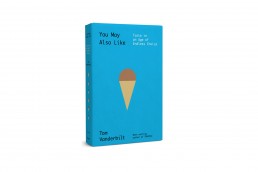
Check out this video to see him talking about the book
Self fulfilling prophecies by Li Edelkoort
Self fulfilling prophecies:
When you have as much clout as Li Edelkoort, your prophecies become self fulfilling. However, it took her almost a lifetime to get there.
'It's the end of fashion as we know it'
Lidewij Edelkoort
Fashion is dead:
Trend forecaster Li Edelkoort has declared, describing the fashion industry as “a ridiculous and pathetic parody of what it has been”
Lidewij Edelkoort, one of the world’s most influential fashion forecasters, used her annual presentation at Design Indaba in Cape Town to fire a broadside at the industry. “This is the end of fashion as we know it.”
Edelkoort said her interest in fashion had now been replaced by an interest in clothes, since fashion has lost touch with what is going on in the world and what people want.
“Fashion is insular and is placing itself outside society, which is a very dangerous step,” she said in an interview.
Edelkoort listed a number of reasons for the crisis in fashion, starting with education, where young designers are taught to emulate the famous names. “We still educate our young people to become catwalk designers; unique individuals,” she said, “whereas this society is now about exchange and the new economy and working together in teams and groups.”

Catering the super wealthy
The World’s Most Expensive Food:
Meet the people supplying and buying £195 chocolate bars, £80,000 bottles of wine and £1000-per-person bespoke dining experiences.
A fine example of extreme marketing for the super wealthy to cater their endless lust for things less wealthy people can’t have. And bloody entertaining too.
Series two of Channel 4’s The World’s Most Expensive Food meets William Hanson to see him at work teaching the art of afternoon tea.
Brand Sense - Martin Lindstrom
The definitive book on sensory branding, shows how companies appeal to consumers’ five senses to sell products.
Did you know that the gratifying smell that accompanies the purchase of a new automobile actually comes from a factory-installed aerosol can containing “new car” aroma? Or that Kellogg’s trademarked “crunch” is generated in sound laboratories? Or that the distinctive click of a just-opened jar of Nescafé freeze-dried coffee, as well as the aroma of the crystals, has been developed in factories over the past decades? Or that many adolescents recognize a pair of Abercrombie & Fitch jeans not by their look or cut but by their fragrance?
In perhaps the most creative and authoritative book on how our senses affect our everyday purchasing decisions, global branding guru Martin Lindstrom reveals how the world’s most successful companies and products integrate touch, taste, smell, sight, and sound with startling and sometimes even shocking results. In conjunction with renowned research institution Millward Brown, Lindstrom’s innovative worldwide study unveils how all of us are slaves to our senses—and how, after reading this book, we’ll never be able to see, hear, or touch anything from our running shoes to our own car doors the same way again.
An expert on consumer shopping behavior, Lindstrom has helped transform the face of global marketing with more than twenty years of hands-on experience. Firmly grounded in science, and disclosing the secrets of all our favorite brands, Brand Sense shows how we consumers are unwittingly seduced by touch, smell, sound, and more.
The Story of Fashion with Karl Lagerfeld
Feel like fashion? The Story of Fashion, with star designer Karl Lagerfeld, presents 100 years of fashion from the inventor of haute couture, Charles Worth, to the leading labels of the fashion industry of the 1980s. Fashion illustrations, photographs as well as unique footage reflect the Zeitgeist of the different periods, enchanting the viewer as the atmosphere of international catwalks is conjured.
On its excursions to the different fields of fashion, the trilogy moves through cultural history, pointing out trendsetters from art, music and film, and portrays a great number of influential fashion designers such as Poiret, Chanel, Schiaparelli, Quant and Dior. Along with Lagerfeld, the designers Giorgio Armani, Pierre Cardin, Donna Karan and the critic Carrie Donovan afford us fascinating insights into the sensual world of fashion.
Available from Arthaus Musik, Cat. No. 106034
http://www.naxos.com/catalogue/item.a...
The Fine Art of Separating People from Their Money
The film is hosted by Hollywood star Dennis Hopper and is directed by Hermann Vaske. Shot in the Atlas Mountains of Morocco, Hopper delivers a powerful performance. Arty as you’ve never seen him before, he puts advertising into perspective of popular culture at the end of the 20th century. Spitting colour, laughing his head off, destroying books, Dennis Hopper sends Hermann Vaske on a mission to talk to the greatest ad men, directors and artists to find out about the crossover between various creative disciplines. In a visually dazzling, wickedly funny slam of creativity and media obsession, Hermann conducts unconventional kinds of interviews
Epilogue
Interesting to see that part 4, which is about using shock as a paradigm and which you should surely skip if you detest shocking imagery, hasn’t survived the test of time. Pulp Fiction by Quintin Tarantino, quoted in this part of the film when it was just released, has.

